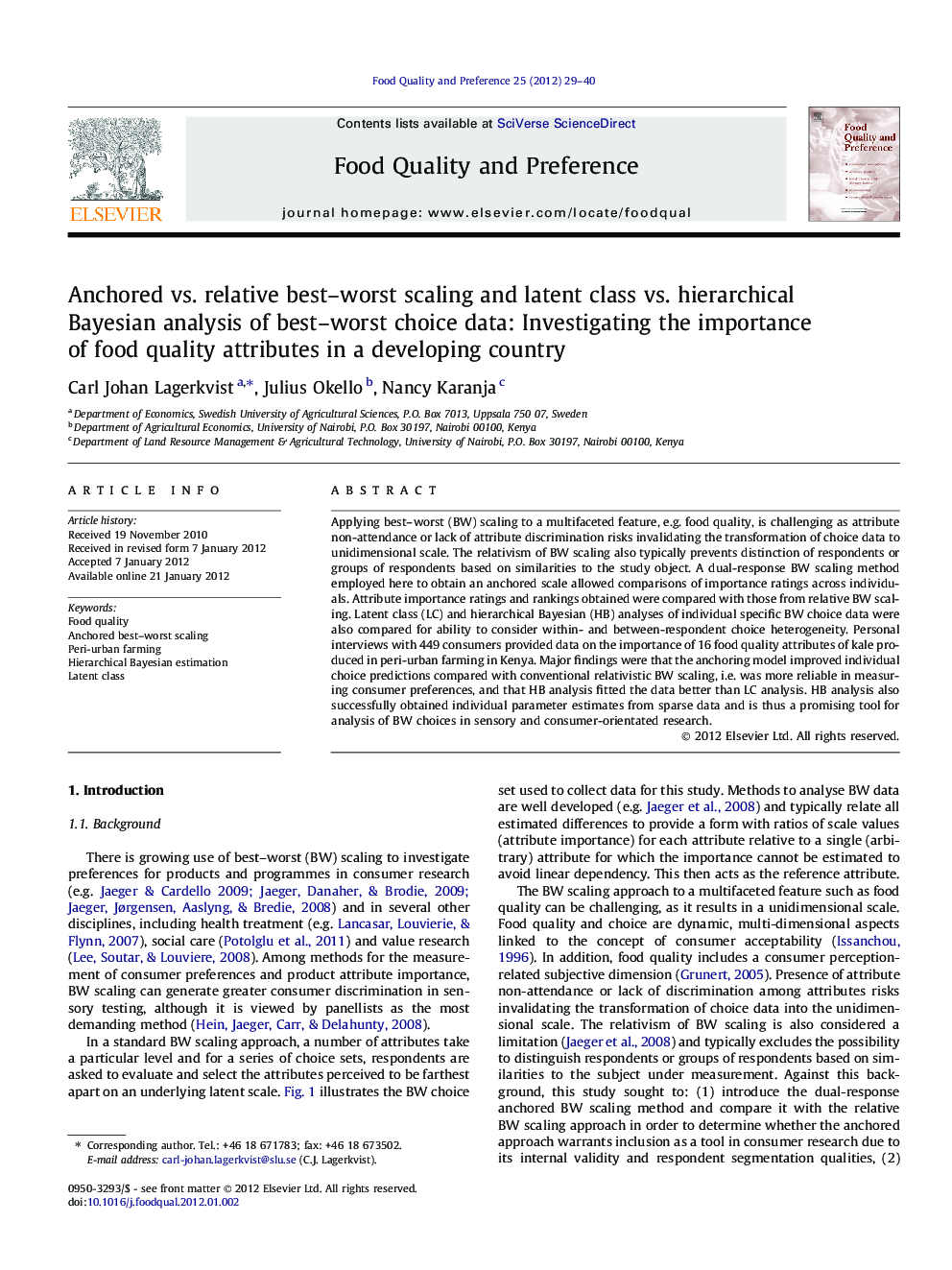| کد مقاله | کد نشریه | سال انتشار | مقاله انگلیسی | نسخه تمام متن |
|---|---|---|---|---|
| 4317599 | 1290604 | 2012 | 12 صفحه PDF | دانلود رایگان |

Applying best–worst (BW) scaling to a multifaceted feature, e.g. food quality, is challenging as attribute non-attendance or lack of attribute discrimination risks invalidating the transformation of choice data to unidimensional scale. The relativism of BW scaling also typically prevents distinction of respondents or groups of respondents based on similarities to the study object. A dual-response BW scaling method employed here to obtain an anchored scale allowed comparisons of importance ratings across individuals. Attribute importance ratings and rankings obtained were compared with those from relative BW scaling. Latent class (LC) and hierarchical Bayesian (HB) analyses of individual specific BW choice data were also compared for ability to consider within- and between-respondent choice heterogeneity. Personal interviews with 449 consumers provided data on the importance of 16 food quality attributes of kale produced in peri-urban farming in Kenya. Major findings were that the anchoring model improved individual choice predictions compared with conventional relativistic BW scaling, i.e. was more reliable in measuring consumer preferences, and that HB analysis fitted the data better than LC analysis. HB analysis also successfully obtained individual parameter estimates from sparse data and is thus a promising tool for analysis of BW choices in sensory and consumer-orientated research.
► Consumer perceptions of food quality were studied in a developing country context.
► Anchored best–worst scaling (BWS) was developed and compared with relative BWS.
► Latent class and hierarchical Bayesian estimations provided importance weightings.
► Food quality related to vegetables was shown to be a multi-dimensional phenomenon.
► Intrinsic credibility attributes were predominantly perceived as important.
Journal: Food Quality and Preference - Volume 25, Issue 1, July 2012, Pages 29–40